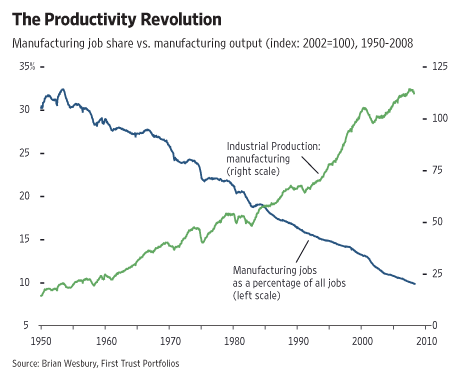I recently took a trip to Orlando, Florida, for the International Home Builders' Show. After touring the floor and having my suspicions about the industry’s issues of corruption and collusion verified, I decided I would invest some time in a different, more inspiring place — Disney World. I love the Disney theme parks. They are creative, fun, and have some of the best-executed designs anywhere in the world.
At one point during the excursion in the theme parks, I had the chance to go to a new attraction that is a museum about Disney's Florida project. There is a fascinating video of Walt Disney speaking about the project one month before his death. It was a political video that had been used to persuade the Florida legislature to allow Disney to construct Disney World. It was also intended to persuade the state government that because of the size and scale of the project the company would need to receive some relief from code requirements and to establish the Reedy Creek District, an autonomous pseudo government that oversees the entire Disney property. The district gave Disney authority over its own property and relief from significant oversight by the state government in Florida.
In the video, Walt Disney spoke of his dreams for EPCOT (the Experimental Prototype Community of Tomorrow).
EPCOT will be an experimental prototype community of tomorrow that will take its cue from the new ideas and new technologies that are now emerging from the creative centers of American industry. It will be a community of tomorrow that will never be completed, but will always be introducing and testing and demonstrating new materials and systems. And EPCOT will always be a showcase to the world for the ingenuity and imagination of American free enterprise.
I thought that Walt's saying "EPCOT will always be a showcase … of American free enterprise" was a nice line, and given his propensity for being avuncular it came across as quite folksy; it harked back to a bygone era. It stirred in me a fondness for the past and a thought that there must have been an era sometime in America when people spoke openly of profit and free enterprise. I felt the urge to wonder if there was more to our history than the simple statement that "we've always been at war with the capitalists." Perhaps there was a time when we were freer, when it was copacetic for businesspeople to celebrate free enterprise.
Spending a few days in the Disney World parks and seeing the full expression of creativity, I began to wonder if, even though EPCOT was never implemented in the form that Walt Disney had envisioned, this place wasn't nonetheless accomplishing that altruistic goal of showcasing American free enterprise. Because of the early work that the Walt Disney Company did to establish their own pseudo-government entity, it appeared there was more flexibility in how they could work and design on the Florida property than in the heavily regulated field of commercial development within the confines of a city or town jurisdiction.
I thought for a moment about my travels to this showcase of free enterprise and wondered just how much of the free-enterprise system was left in America. I began to recall all of the elements of my travel and realized quite quickly that, while we may hold out the idea of being a free society, government and its regulators have their mitts on just about every facet of our lives.
I remembered that it had started with my Greek yogurt the morning I left — I was able to see that what I was consuming had no fat and 20 grams of protein. This information had been nicely printed on the back label of the product, a label mandated and standardized by the FDA.
As I kissed my wife goodbye and put on my coat, I noticed that it had a mandatory materials label.
I locked the front door behind me, and even that was tested by an EPA-approved method that allowed me to receive my certificate of occupancy to live in the home — because my home energy rating had been acceptable to the state in which I live.
I scraped the ice off my window to find a federally mandated vehicle identification number and emission sticker in the window. The government had required my car manufacturer to provide the label so that they could track my vehicle, license it, and potentially reveal my private information.
The emissions sticker was there to verify that the car had originally been built to CAFE (Corporate Average Fuel Economy) standards and that my emission levels were at a tolerable level for state licensing.
I sat down and put on my safety belt, a required part of the driving experience in my state.
I exited onto Interstate 25 on a federally-mandated exit radius and drove the state-mandated speed limit to the government-owned airport on a highway designed to federally-mandated standards.
Along the way, I stopped to purchase gasoline that had been sanctioned clean enough by the state, through a pump tested by the state, with a credit card that is subject to federal regulations that are ever on the rise.
I parked my car and headed inside to take my place in the TSA's Fourth Amendment-free zone. I was subjected to a warrantless search and seizure. I was treated as the common criminal I am not and asked to remove my shoes, belt, and any other item that would have been required for my entrance into any café in the airport — another state regulation from the health department, I might add.
I proceeded through the checkpoint and down to the terminal. The PA announcer reminded me that the Department of Homeland Security had raised the terror alert in 2006 to "orange."
Once on the plane I spent the first few minutes of the taxi being reminded of all the federal regulations I had the chance to violate in this sardine can in the air.
I was shown how to put on a seat belt in a safety demonstration required by the FAA. We were told about the federal violations of smoking a cigarette, tampering with a smoke detector, and sitting in an exit row if under the age of 16. I was also told of the mandate that I had to refrain from using my electronic devices for the first ten minutes of flight.
After we were finally in the air, I was reminded that gathering at the front of the airplane waiting for one of the two bathrooms allotted for 300 people was a federal offense against a federal regulation.
Once in Orlando, I was picked up by my traveling companions and whisked away to the hotel. I crossed the street intersection using a federally mandated ADA (Americans with Disabilities Act) handicap ramp with federally standardized truncated domes, climbed onto the federally mandated, state-inspected elevator in the building, and went to our room. Once there, the strange layout of the bathroom left three of us to use one awkwardly located toilet, because our room was helping the building meet its compliance to ADA standards.
We traveled to one of our favorite and most inspiring hotels, Disney's Wilderness Lodge, and caught a bus there at the facility. It smoothly lowered to comply with the ADA and let us on.
Once in Disney World, I saw a crane that was working on Cinderella's castle in Fantasyland. I also saw several signs that Disney was adhering to the demands of OSHA (the Occupational Safety Hazard Administration). OSHA requires a construction fence, the wearing of mandated hard hats, and the use of awkward safety ropes — none of which was contributing to the illusion of Fantasyland or actually making workers safer.
The silt fence that surrounded the construction site was mandated by the EPA to help keep the water (which Disney uses for recreation and to derive a premium on their properties) clean.
We made our way to Space Mountain, a high-speed roller coaster that is entirely in the dark. By "entirely" I mean with the exception of the government-mandated exit signs that distract from the overall theme and scene of a futuristic rocket in space. It struck me as odd that it would be required that I know where the exits were at all times as I was strapped into my harness, blazing past them at 20 miles per hour.
I needed a bathroom break and noticed that the toilet I used had a federally-mandated "gallons per flush" tattooed on the top of the porcelain. I thought it was interesting that Disney has no legal ability to make an analysis of the most efficient toilet and use a different kind if they choose. I am certain that they would be the best judge of what toilet makes their bottom line better. If more water makes toilets clog less, and their paid staff has to clean up the ultimate disaster less frequently, can't Disney be the judge of that efficiency? After all, I know through attending several Disney Institute business seminars that the company spends millions of dollars on efficiency studies and monitoring each year in order to save themselves millions in the future.
Finally it was time to retire to our hotel, and so we embarked on a trip on the monorail, a futuristic mode of transportation that Walt Disney helped create. When I was younger, I loved riding in the front car along with the pilot, as he explained the ins and outs of driving this sleek method of transport. This time again, the door to the cockpit was open, and we made our way to the front. We asked if we could ride with the pilot in the front car that was designed for passengers, and we were politely denied entrance.
When we probed further, we found that the federal government had reclassified the monorail from a theme-park attraction to a mode of transportation, and now it fell under the watchful eye of the TSA. It, like many other forms of transportation, was now subject to all the rules that were passed in a frenzy after the 9/11 tragedies. The TSA is now spending effort and energy monitoring the monorail at Disney World, the very safest method of transportation, which has had one fatal accident in over 50 years of service.
The sheer intellectual dishonesty of the state, which has concluded that Disney has no private interest in monitoring its own safety at as high a level as possible, indicates to me that the rules are not about keeping people safe. There are significant financial and aesthetic incentives for Disney to make sure that the water that surrounds its properties is clean and that the environment that it has billions of dollars invested in remains as pristine and wonderful as it can, so that Disney can continue to derive the highest possible dollar for its free-enterprise endeavor.
It is obvious that Disney has a high stake in seeing that the workers who work for them are safe and free of situations that might cause any litigious heartache. In the end, all this makes one aware that none of the current system of regulation is about the actual safety or benefit of the people. It becomes crystal clear that government's goal is maintaining as much power as possible over people and free enterprise.
If one thinks further about the confiscation of money through all of the additional taxes levied upon each of the events in my trip, the control over our lives by the bureaucrats is astounding. Walt Disney maintained his desire to see the free-enterprise system of America always promoted as the solution to issues that societies face. The unfortunate reality of the present is that Disney World is becoming more of a museum about a bygone era than a workable showcase for the future. The inventiveness and creativity has become invested in finding ways around the government codes the company is required to meet instead of ways to promote free enterprise.
Originally posted here.



















